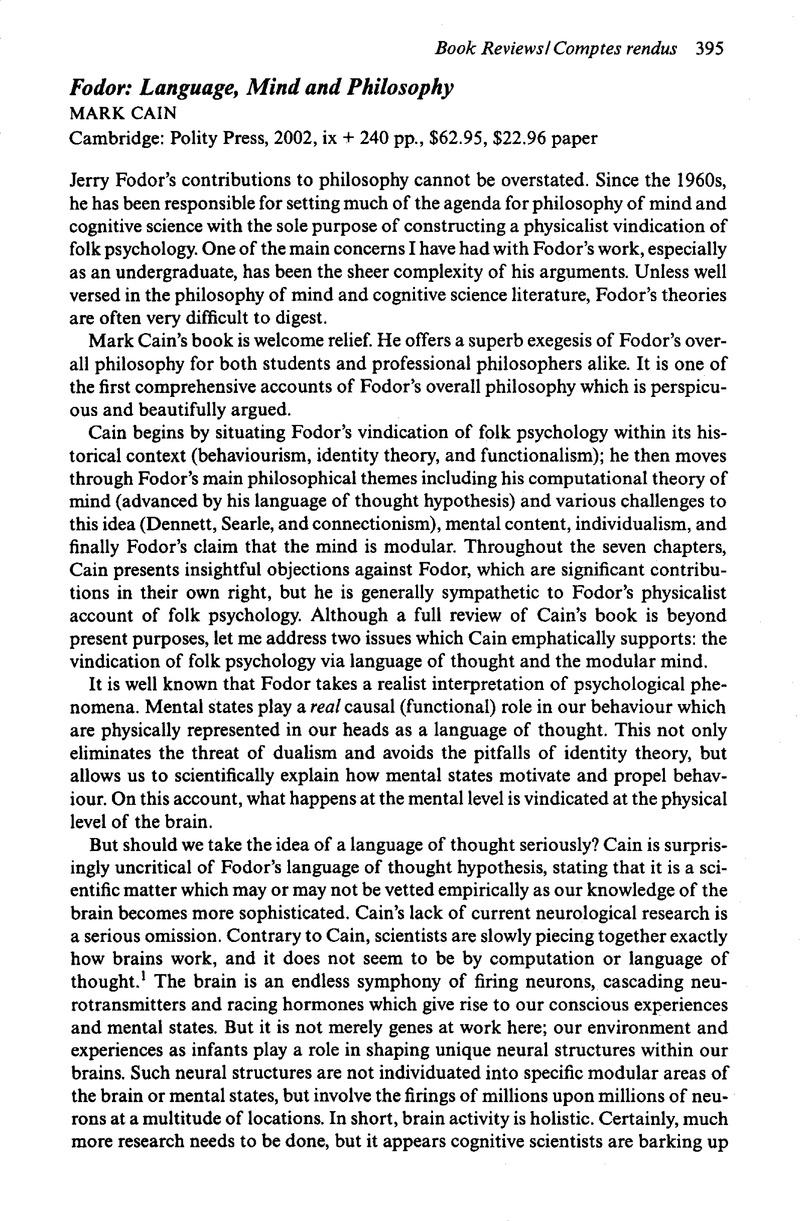No CrossRef data available.
Article contents
Fodor: Language, Mind and PhilosophyMark Cain Cambridge: Polity Press, 2002, ix + 240 pp., $62.95, $22.96 paper
Published online by Cambridge University Press: 13 April 2010
Abstract

- Type
- Book Reviews/Comptes rendus
- Information
- Dialogue: Canadian Philosophical Review / Revue canadienne de philosophie , Volume 43 , Issue 2 , Spring 2004 , pp. 395 - 397
- Copyright
- Copyright © Canadian Philosophical Association 2004
References
Notes
1 See, for example, Churchland, Patricia, Neurophilosophy: Toward a Unified Science of the Mind-Brain (Cambridge, MA: MIT Press, 1986)Google Scholar; Edelman, Gerald, Bright Air, Bright Fire: On the Matter of the Mind (New York: Basic Books, 1992)Google Scholar; and Greenfield, Susan, The Private Life of the Brain: Emotions, Consciousness and the Secret of the Self (New York: John Wiley & Sons, 2000)Google Scholar.
2 For a detailed account of this objection, see Lyons, William, Approaches to Intentionality (New York: Oxford University Press, 1995).Google Scholar
3 Research by Lillard, Angeline in her “Ethnopsychologies: Cultural Variations in Theories of Mind” (Psychological Bulletin, 123 [1998]: 3–32)CrossRefGoogle Scholar shows that many cultures do not share the same zest for psychological explanation and some even consider the mind as unimportant. Lillard presents a smorgasbord of theories of mind from around the world which are interesting and informative. The upshot undercuts any claims that belief/desire psychology is universal.




